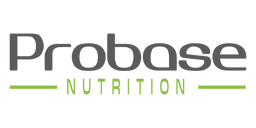What is NMN?
NMN is a molecule that naturally occurs in the body and plays a crucial role in energy metabolism. It's a precursor to NAD+ (Nicotinamide Adenine Dinucleotide), a coenzyme that is essential for many cellular processes, including DNA repair, gene expression, and energy production. As we age, our levels of NAD+ decline, which can lead to cellular damage and contribute to the aging process.
NMN is believed to be a potential anti-aging supplement because it can increase NAD+ levels in the body, thereby supporting cellular health and potentially reducing the risk of age-related diseases.
Scientific Research on NMN
There have been several studies on the benefits of NMN, and the results are promising. In a 2016 study published in Cell Metabolism, researchers found that NMN supplementation improved blood glucose levels and lipid metabolism in mice, suggesting that it could be a potential treatment for metabolic disorders.
Another study published in the journal Nature Communications in 2018 found that NMN supplementation improved muscle function and physical activity in older mice. The researchers concluded that NMN could be a promising therapy for age-related muscle decline and frailty in humans.
Furthermore, a recent study published in the journal Aging Cell in 2021 found that NMN supplementation improved cognitive function and reduced neuroinflammation in aging mice. The researchers suggested that NMN could be a potential therapy for age-related cognitive decline in humans.
Why NMN is Not a Myth
The scientific research on NMN suggests that it's not just another health trend or myth. While more research is needed to fully understand its potential benefits, the existing studies show that NMN could be a promising supplement for improving cellular health, reducing the risk of age-related diseases, and potentially extending lifespan.
However, it's important to note that NMN is not a miracle cure, and it's not a substitute for a healthy lifestyle. The best way to support cellular health and reduce the risk of age-related diseases is through a balanced diet, regular exercise, and other healthy habits.
Conclusion
In conclusion, the scientific research on NMN supports its potential as an anti-aging supplement. While more research is needed to fully understand its benefits and potential risks, the existing studies suggest that NMN could be a promising therapy for improving cellular health, reducing the risk of age-related diseases, and potentially extending lifespan. However, it's important to approach NMN with a critical eye and understand that it's not a miracle cure. A healthy lifestyle is still the best way to support cellular health and reduce the risk of age-related diseases.


